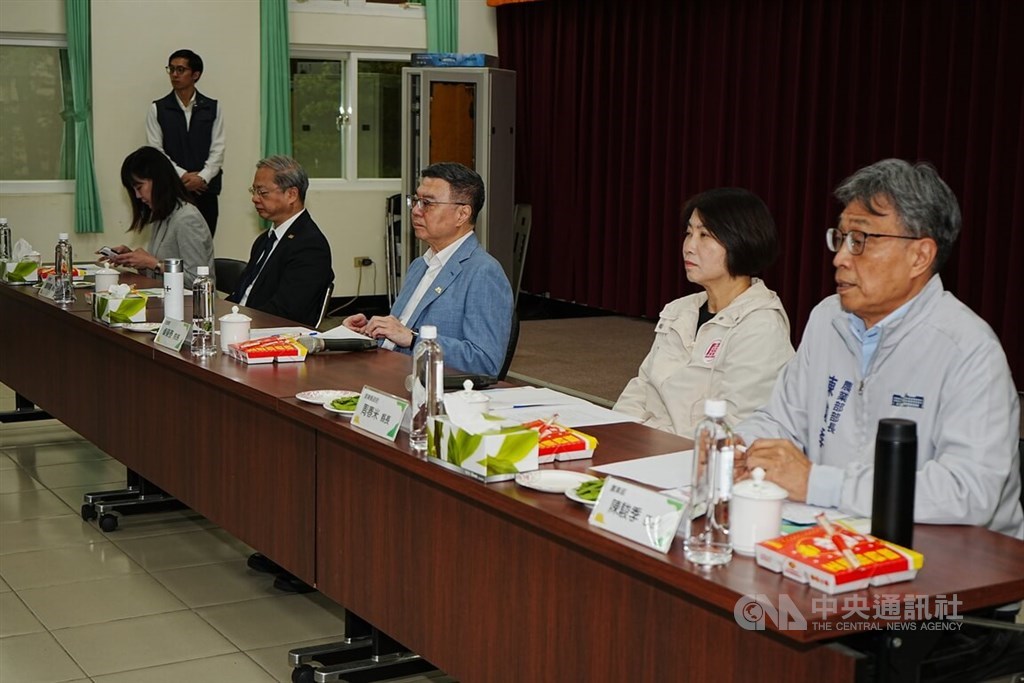Taipei, April 13 (CNA) The Cabinet has postponed by a week the release of details of a NT$88 billion (US$2.72 billion) support package aimed at mitigating the impact of higher U.S. tariffs on Taiwan’s economy, Premier Cho Jung-tai (卓榮泰) said.
Cho announced the delay during a meeting with edamame producers and traders in Pingtung County on Sunday, the fourth stop on his “industry listening tour.”
Due to uncertainty surrounding the U.S. position, Cho said ministries and agencies need more time to finalize the package’s details, including how subsidies will be allocated across various industries.
Officials in Washington and Taipei began talks via video conferencing on Friday regarding the “reciprocal tariffs” announced on April 2 by U.S. President Donald Trump, who plans to hike import duties on goods from more than 70 countries, including Taiwan.
A 10 percent global levy has been imposed on almost all goods shipped to the U.S. from April 5, but more than 70 countries were set to see the higher “reciprocal tariffs” slapped on their U.S.-bound goods from April 9, until Trump announced a 90-day pause on the higher import tax.
The “reciprocal tariffs” announced for Taiwan are set at 32 percent, higher than neighboring economies, including the 24 percent import duties set for Japan, and the 25 percent planned for South Korea.
China was the only country that saw Trump’s “reciprocal tariffs” take effect on April 9 at 125 percent, on top of an existing 20 percent Trump imposed, citing fentanyl.
During the Pingtung meeting, Wei Dong-qi (魏東啓), chairperson of the Taiwan Regional Association of Frozen Vegetable and Fruit Manufacturers, raised concerns about China overtaking Taiwan as Japan’s top edamame supplier last year, citing local production losses caused by typhoons.
Wei said he was worried Chinese producers would further shift their focus to Japan, given the newly imposed 125 percent U.S. tariff, which could further hurt Taiwan’s share in that market.
Chen Jung-hua (陳榮華), head of an association of contract edamame producers, urged the government to negotiate lower rents on leased farmland and offer subsidies to offset the rising costs of fertilizer, equipment, and harvest labor.
According to the Agriculture and Food Agency, Taiwan produced 77,258 metric tons of edamame in 2024, with 45 percent exported. Japan accounted for 73 percent of the 32,654 metric tons sold overseas, followed by the United States at 19 percent.
The agency said the U.S. imports around 40,000 metric tons of frozen edamame annually, with 70 percent coming from China and 10-15 percent from Taiwan.
Despite the new tariffs, Chinese edamame could still undercut Taiwanese prices in the U.S. market due to significantly lower production costs, the agency said.
During his briefing to lawmakers on Friday, Cho said edamame was among the agricultural products most vulnerable to the 32 percent tariff. He noted that funding and special legislation for the four-year support package still require legislative approval.
